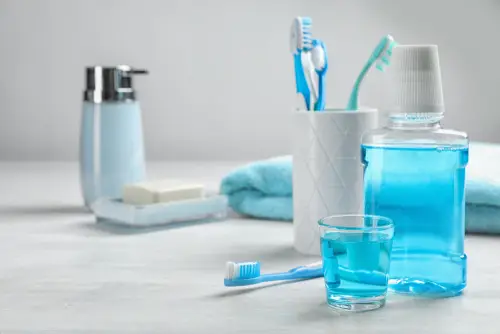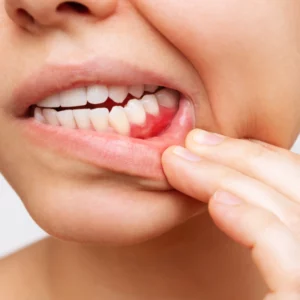Fluoride is easily one of the most debated topics in the world of dentistry. Some dentists argue that fluoride is not essential to maintain good oral hygiene while others think that it is beneficial for your teeth.
The fact is fluoride cannot be considered a threat to your overall health if it is used correctly. It can even provide some important benefits to your oral health such as avoiding cavities.
What Is Fluoride and Where Does It Come From?
Fluoride is a fundamental mineral that is abundantly found in soil, water, and foods. It can be very easily found in nature. Synthetic fluoride is used to purify drinking water. It is also used in dental products like mouthwashes, toothpaste, and other chemicals that help in disinfecting your mouth.
What Products Contain Fluoride?
Fluoride is usually present in dental hygiene products like varnishes, gels, fillings, and oral cement, floss, mouthwashes, and even toothpaste. It is used commonly in dental products because recent studies by the American Dental Association show that fluoride can prevent decay by up to forty percent. It is very effective in reducing cavities in patients of all age groups. Hence by using fluoride properly, you can save a lot of money and time. It is a good alternative to restore any dental damage caused by decay.
Fluoride in Water
In some areas, consuming fluoridated water has also been proven to promote dental hygiene. In a recent study by Cochrane, children who consumed fluoridated water supply encountered over 35 percent less tooth decay in their filled or missing baby teeth. There was also a 15 percent increment in the number of children who experienced absolutely no decay in their baby teeth.
How Does Fluoride Work?
Let us take a look at how fluoride actually works and helps in reducing tooth decay.
- Fluoride starts by changing how the enamel develops in young children under the age of 7. It makes their teeth more resistant to attacks by acid. This makes it harder for bacteria to latch on to their teeth and prevents cavities.
- Fluoride creates an atmosphere where the developed enamel is of a better quality as compared to other kids. It is less prone to attacks by nature.
- Fluoride reduces the capacity of bacteria present in plaque to produce any harmful acid that can deteriorate your oral health.
These considerable benefits help in strengthening and protecting the enamel of the tooth and avoid decay. Practicing using fluoride properly can significantly reduce the costs incurred in treating dental problems.
Are There Risks Associated with The Use of Fluoride?
Just as the case is with any other substance you put in your body, you need to be careful with fluoride. When it comes to fluoride, moderation is of the utmost importance. Even though fluoride is beneficial to your oral health, using too much of it can cause some side effects as well.
Most of us don’t need to worry about ingesting too much fluoride. The water regulations in most areas keep a check on the quality of our drinking water. Dental products only use safe amounts of fluoride. The most common side effect of consuming too much fluoride is streaks or temporary white spots on teeth. Although it is not harmful, it is seen as a cosmetic concern.
Ingesting small amounts of fluoride is not dangerous. Up to 100 international and national organizations have officially recognized the advantages of using a safe amount of fluoride in dental products and water.
The benefits of using fluoride in controlled amounts clearly outweigh the dangers. However, if you are concerned about using fluoride, you should consult your dentist.












